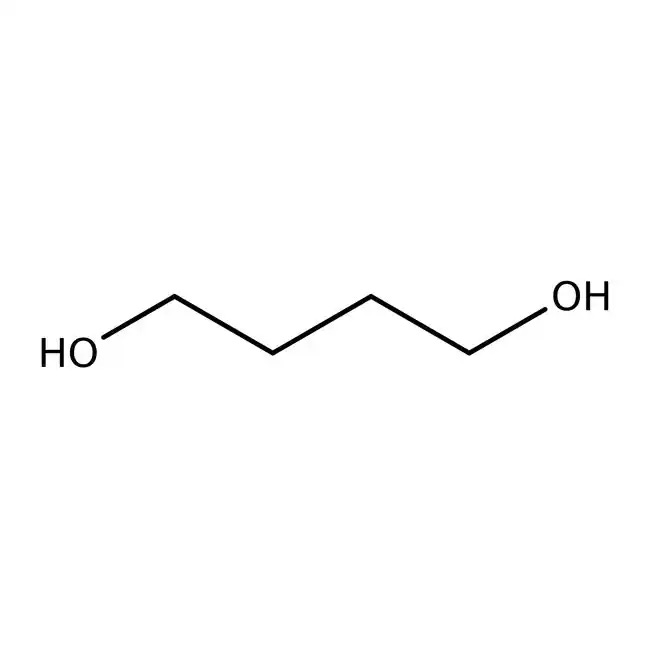Bio-based 1,4-butanediol (bio-BDO) is a sustainable version of 1,4-butanediol (BDO), a chemical compound that is extensively used in the production of plastics, solvents, electronic chemicals, and elastic fibers. Bio-BDO is produced from renewable resources, such as sugars, corn, or biomass, through microbial fermentation, making it an eco-friendly alternative to BDO produced from fossil fuels. The utility and significance of bio-BDO extend beyond sustainable materials and can impact various aspects of society and industry.

Why Is Bio-BDO in the news?
This is what *large-scale* production of more sustainable materials — bio-BDO — looks like, with moves in Vietnam for plans of up to *200,000* tons of annual production, though starting with plans for 50,000/year by 2026.
BDO is a widely-used ingredient usually from petrochemical feedstocks, and the materials made from it like spandex, will see meaningful increases in volumes for biobased products with notably lower GHGs using bio-BDO.
This complements Novamont’s 30,000 ton plant and the 65,000 tons under construction by Qore (Cargill/HELM).
From the press release:
- Hyosung TNC is launching a Bio-BDO factory in Vietnam with an initial capacity of 50,000 tons, aiming to expand to 200,000 tons annually, marking a shift from fossil raw materials to sugarcane-based bio raw materials, with applications in textiles, plastics, and more.
- This initiative will introduce the world’s first fully-integrated production system for bio-spandex, leveraging US-based Geno’s GENO BDO™ technology for efficient and scalable production, targeting the completion of the first phase by the first half of 2026.
- The project is a strategic move by Hyosung TNC to address the growing demand for sustainable fibers, underpinned by Chairman Hyun-Joon Cho’s vision of making the bio business a central pillar of Hyosung’s strategy for the next century, enhancing their global market presence with sustainable bio materials.

What’s In It for Everyday People and Institutions
Environmental Benefits
- Reduction in Carbon Footprint: The production of bio-BDO from renewable resources can significantly lower greenhouse gas emissions compared to its petroleum-based counterpart. This helps in combating climate change and promoting environmental sustainability.
- Decreased Dependence on Fossil Fuels: By utilizing renewable resources, bio-BDO production reduces our dependence on oil and natural gas, contributing to energy security and sustainability.
Economic Impacts
- Development of Rural Economies: The production of bio-BDO can stimulate economic growth in rural areas where biomass or agricultural feedstocks are sourced, creating jobs and supporting local economies.
- Innovation and Market Growth: The push for sustainable materials like bio-BDO can drive innovation in green chemistry and biotechnology, leading to new products and markets.
Societal Benefits
- Public Health: Reducing pollution and greenhouse gas emissions contributes to cleaner air and water, directly benefiting public health.
- Sustainability Awareness: The adoption of bio-BDO and similar sustainable materials can increase public awareness about sustainability and encourage more eco-friendly lifestyle choices across various sectors of society.
Benefits to Industries Outside of Chemical Manufacturing
- Textiles and Apparel: The use of bio-BDO in producing spandex for clothing makes the textile industry more sustainable, potentially leading to eco-friendlier fashion choices.
- Automotive and Aerospace: Bio-based plastics and composites made with bio-BDO can reduce the carbon footprint of manufacturing in these industries, leading to more sustainable transportation options.
- Consumer Goods: From packaging to electronic gadgets, the incorporation of bio-based materials like bio-BDO can make everyday products more environmentally friendly.
Global Impact
- Climate Action: By contributing to a reduction in carbon emissions, the widespread adoption of bio-BDO supports global climate action goals and treaties.
- Resource Efficiency: Bio-BDO exemplifies how industries can move towards more efficient and sustainable use of natural resources, setting a precedent for other sectors to follow.
Bio-BDO through Prism14’s AI, Flow for People, and Materials-aware Lens
Let’s frame the benefits and significance of bio-based 1,4-butanediol (bio-BDO) through the unique Prism14 lens, #knowlifematters focusing on the interconnected dimensions of people, data, and materials — here’s how:
Materials
The transition to bio-BDO exemplifies a profound shift in how we perceive and interact with materials. By prioritizing renewable resources over finite ones, we’re not just choosing a different kind of raw material; we’re redefining our relationship with the Earth’s resources. This shift towards a more sustainable materials ecosystem mirrors the flow concept of being “in the zone,” where every action and decision is harmoniously aligned with broader environmental and societal well-being. It reassures us that our interactions with the material world contribute positively to the future of our planet.
AI + Data
Data surfaces as virtual traces of our actions and their outcomes, offering insights that drive the shift towards sustainable materials like bio-BDO. By leveraging data, we can optimize the integration into products people want, efficient and effective production processes, reducing waste, and enhancing the efficiency of resource use, moving closer to a closed-loop materials ecosystem — where we use what we need and don’t create any waste.
Within the pattern of flow psychology, access to data empowers individuals and organizations to make informed decisions that align with our shared values of resilience and efficiency, enhancing the sense of alignment and ownership over our environment and related people outcomes.
The advent of artificial intelligence (AI) has heralded a new era in the advancement of bioengineering and process engineering, particularly in the development and optimization of sustainable technologies. AI’s influence in these fields is profound, offering revolutionary pathways to enhance efficiency, innovation, and environmental stewardship. By harnessing the power of machine learning, deep learning, and data analytics, AI enables researchers and engineers to tackle complex biological systems and industrial processes with unprecedented precision and insight.
People
Refracting through the lens of flow psychology, the move towards bio-BDO can enhance communal and individual well-being by fostering a thoughtful relationship to the environment and promoting awareness around consumption.
When people understand their direct impact on promoting resilience through support for bio-based products, they experience a sense of purpose and fulfillment — and often improvements in quality of experience.
This alignment with larger environmental goals facilitates what we might think of as a collective flow state, where communities are engaged in the pursuit of a common good, ensuring a healthier planet for future generations — and the anticipated challenges will be appropriately supported.
Closing Thoughts on Expansion of bio-BDO Capacity
Adopting bio-BDO with lower-carbon inputs represents a significant step towards sustainable living. We can breathe easier knowing there’s a future for our children and relations, enhancing the quality of life for all beings by fostering a deeper sense of interconnectedness and responsibility towards our planet. Through the Prism14 lens, the journey towards sustainability becomes a collective project — highlighted by joy, fulfillment, and an enduring commitment to growing the world for generations to come.

Leave a Reply